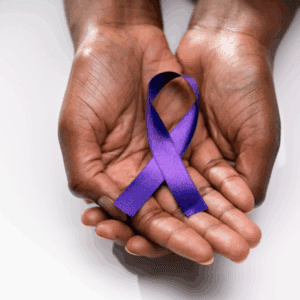Dr. Paul Oberstein discusses available treatment approaches for pancreatic cancer—from surgery and chemotherapy to emerging targeted therapies and clinical trials. Dr. Oberstein reviews how pancreatic cancer treatment strategies have evolved and the benefits of clinical trial participation for patients.
Dr. Paul Oberstein is Section Chief of Gastrointestinal (GI) Oncology at NYU Langone and Assistant Director of the Pancreatic Cancer Center of NYU Langone’s Perlmutter Cancer Center. Learn more about Dr. Oberstein.
Related Resources
Transcript
Jamie Forward:
Dr. Oberstein, what are the main treatment approaches for pancreatic cancer today?
Dr. Paul Oberstein:
So, pancreatic cancer treatments have evolved. The main treatments are the ones we have 20 or 30 years ago. And that’s really, surgery when appropriate, chemotherapy for almost patients that are eligible, and radiation therapy for a small number of patients. So, those treatment options have not changed. What has changed is the way we use them. So, we’ve gained a lot of expertise in the last couple of decades about who is a good candidate for surgery.
I think we do a better job at selecting the right people, and making sure that surgery happens when it needs to, and it doesn’t happen when it shouldn’t happen. The chemotherapies have dramatically improved over the last 20 years. We now use what are called multi-agent chemotherapies. And the most recent approved chemotherapy really has fewer side effects and better efficacy than the previous iterations.
And we’ve also learned a lot about radiation. It used to be used much more frequently, and now we’ve learned that it’s probably only useful in a smaller number of cases. But it is useful sometimes. So, those are the main therapies. I would say in addition to that there are multiple agents that are called targeted therapies, that target specific mutations that either happen in all pancreatic cancer or a subset. And those are not yet FDA-approved, but there are many of them that are moving forward, and one that’s in advanced trials. And so, those are a new modality of therapy that will hopefully be available very soon for patients.
Jamie Forward:
Sure. And so, that brings me to clinical trials. So, how do clinical trials fit into the treatment landscape, and why should patients consider them?
Dr. Paul Oberstein:
Yeah. So, clinical trials should be a very big part of a person’s discussion. That’s – obviously I’m a clinical trialist. But I would say that there’s two reasons why clinical trials are really important. The first is unfortunate, which is that even with the surgery, and chemo, and radiation that I mentioned most people with pancreatic cancer are not cured.
And even if they’re beyond being not cured, they don’t even have as much survival as we hoped they would. The survival is shorter, we don’t talk about numbers, but it’s not what we want, obviously. And so, there’s a need to do better. And clinical trials are really the best way to do better. Because essentially the question in clinical trials is, does the new therapy or combination of new therapies improve outcomes?
I would say there’s almost no one with pancreatic cancer who we say the current standard is good enough, you can’t do better. So, if there’s an opportunity to try something that could do better, we always recommend it. And, of course, that’s not replacing the standard therapy. Usually it’s in addition or some modification of what we currently have, to take it up and do better. So, that’s the main reason. The second reason, which I think is even more exciting, is that we have a lot of exciting treatments in clinical trials.
So, there are things that we’re using today, we try not to get ahead of ourselves we hope. But we’re hopeful. And we have real promising early results from several medications that are early. None of them are FDA-approved yet. But we are very optimistic that they are going to help some patients, hopefully most patients, or all patients. But we’ve got to do the trials to determine how to combine them with other medications. Who do they help? When to use them. And we don’t have any of those answers until we do these trials.



